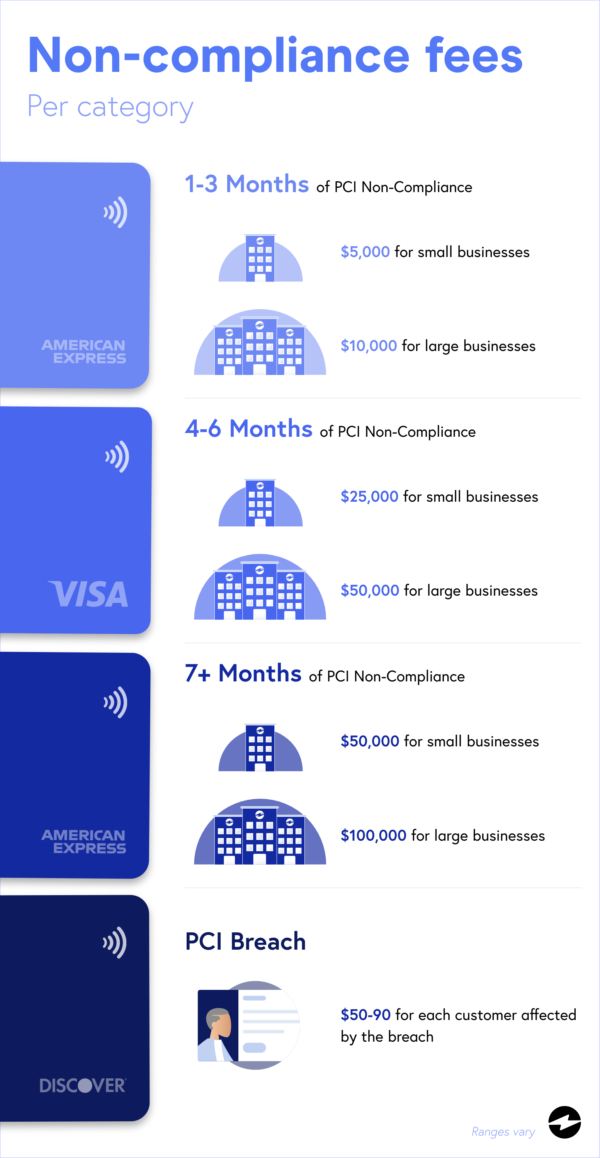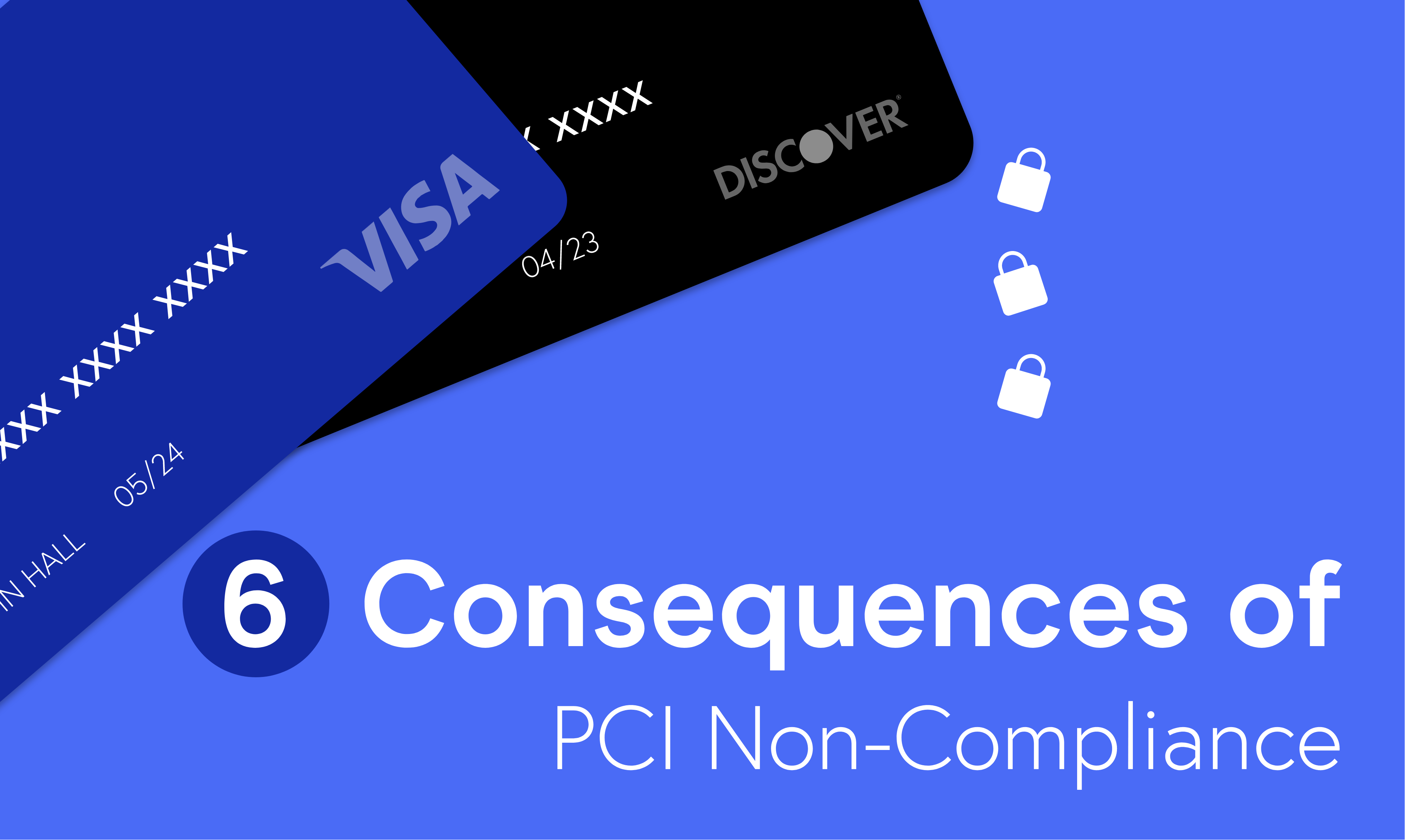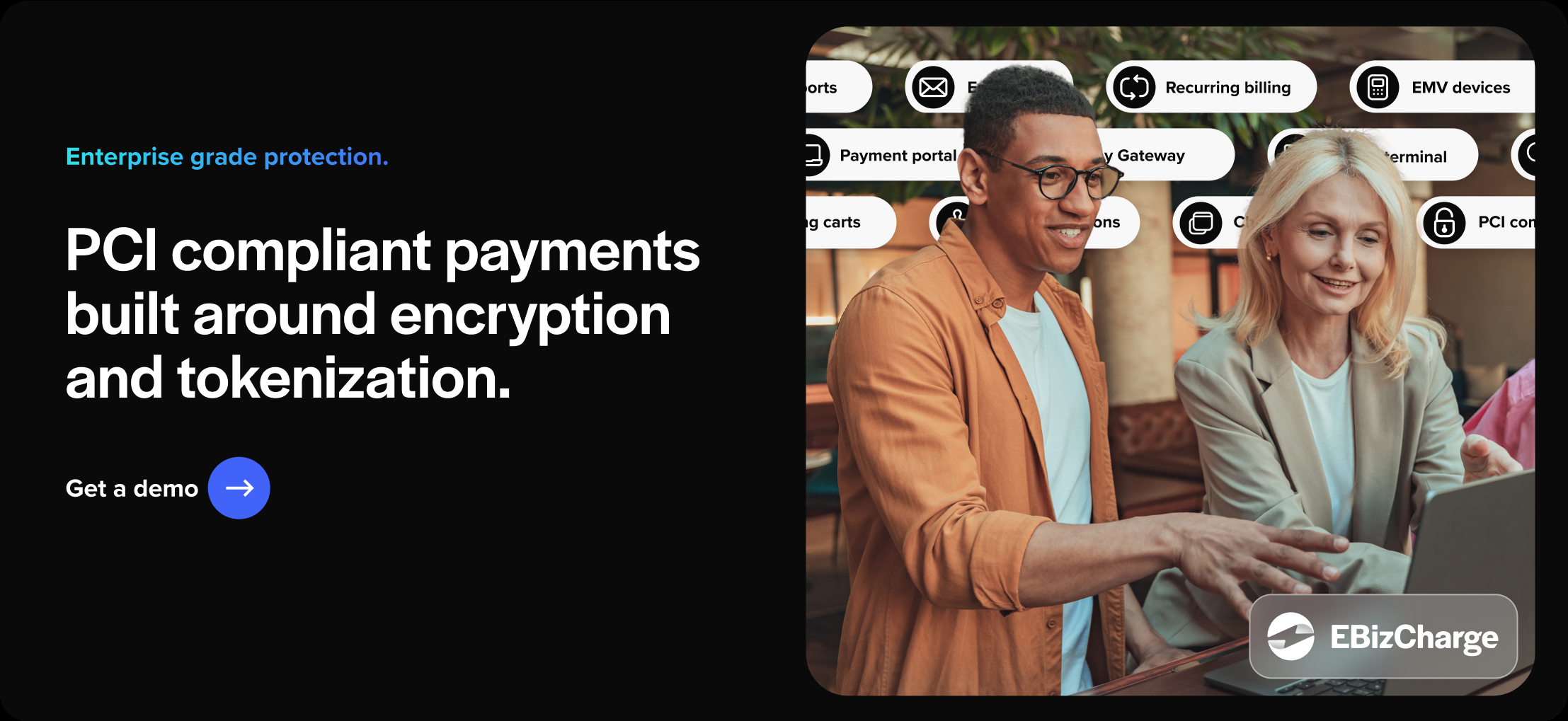Blog > 6 Consequences of PCI Non-Compliance that Merchants Can Encounter
6 Consequences of PCI Non-Compliance that Merchants Can Encounter
Nowadays, merchants that accept credit cards from their customers know how important it is to maintain a secure process when sending, receiving, and storing this payment information.
To ensure businesses provide a sufficient level of payment security, the Security Standards Council published the Payment Card Industry Data Security Standards (PCI DSS) which outlines a list of security requirements that merchants must comply with when accepting credit cards.
PCI Compliance is not legally required, but companies that fail to implement the proper PCI security measures and protocols not only risk exposing their customers to more threats but can also face their own share of repercussions.
The top 6 consequences of PCI Non-Compliance include…
- Monetary fines
- Increased exposure to fraud and data breaches
- Credit card processing restrictions
- Negative legal implications
- Loss of revenue
- Diminished brand reputation and trust
Monetary fines for PCI Non-Compliance
While many threats come from not securing your credit card transactions, failure to comply with PCI DSS can result in costly fines for merchants.
Payment processors and credit card companies (VISA, MasterCard, Discover, AMEX) charge PCI Non-Compliance fines to make up for the potential losses caused by merchants’ lack of payment security.
PCI Non-Compliance fees can range anywhere from $5,000 to $100,000 per month, depending on the PCI violation, the level of compliance the merchant falls under, and the length of time in which a business is not compliant.
According to RSI Security, non-compliance fees can be broken down into four categories:
- 1-3 months of PCI Non-Compliance: These fines range between $5,000/month for small businesses and $10,000/month for larger businesses.
- 4-6 months of PCI Non-Compliance: These fines range between $25,000/month for small businesses and $50,000/month for larger businesses.
- 7+ months of PCI Non-Compliance: These fines range between $50,000/month for small businesses and $100,000/month for larger businesses.
- Fines resulting from a PCI breach: These fines range from $50-$90 for each customer affected by the breach and vary depending on the volume of monthly transactions.
Merchants can easily avoid PCI fines by ensuring their businesses meet and maintain PCI Compliance standards.

Increased exposure to fraud and data breaches
In addition to fines for PCI Non-Compliance, businesses that fail to meet PCI requirements will likely find themselves with insufficient payment security which can lead to increased fraud and data breaches.
PCI Compliance requires merchants to apply payment security features which include firewalls, data encryption, secure storage, antivirus software, routine security scans, and more. These standards go a long way to help protect businesses’ and consumers’ sensitive data and credit card information against fraudulent activity and breaches.
Failure to comply with PCI DSS can result in increased exposure to cyber attacks and threats that target sensitive data like credit card numbers, names, addresses, security codes, etc.
Credit card processing restrictions
Other consequences of PCI Non-Compliance are credit card processing restrictions imposed on merchants that don’t meet the necessary payment security requirements.
Credit card processors and card brands will typically impose credit card processing restrictions for merchants that are not compliant. These restrictions may include limitations on credit card processing (I.e. specific cards, card amount limits, etc.) or termination of processing capabilities altogether.
Negative legal implications
Fraud and data breaches resulting from PCI Non-Compliance may subject merchants to negative legal actions taken by consumers or other parties involved.
These lawsuits typically stem from sensitive data being stolen or compromised due to a merchant’s lack of PCI Compliance and payment security. Therefore, consumers often sue merchants for negligence and damages.
In addition to class-action lawsuits, businesses may also have to pay legal fines and damages to card companies for reissuing credit cards and reimbursing victims of fraud. Card issuers may also take legal actions against merchants for their failure to comply with PCI standards.
Loss of revenue
One of the biggest consequences of PCI Non-Compliance is revenue loss which can not only come from breaches and legal implications, but also from a loss of clientele.
Merchants can suffer revenue losses from a variety of factors like hefty PCI DSS fines, data breach lawsuits, card brand restrictions, and clients taking their business elsewhere due to increased security issues and compromised card data.
Diminished brand reputation and trust
Merchants that fail to meet PCI Compliance and implement the proper security protocols can also diminish their brand reputation and lose consumers’ trust.
Consumers want to do business with companies that store and handle their sensitive credit card information safely. By ignoring PCI Compliance requirements, you’re intentionally neglecting the standard payment security features that every merchant selling goods and services should implement and therefore, exposing your business to more threats.
Once a breach occurs, it’s very difficult for merchants to repair the damage done to their reputation and to rebuild trust with their customers.
Merchants can meet PCI standards and use a reliable payment processor to avoid any penalties for non-compliance
To avoid the consequences of PCI Non-Compliance and more, businesses can easily follow the guidelines set by the Security Standards Council to ensure they have sufficient payment security protocols in place to protect their customers’ sensitive card data.
Merchants can also take advantage of reliable payment processors that guarantee PCI Compliance and provide robust services to enhance their payment collection process.
 Is you business PCI compliant? Take this 1-min quiz to find out.
Is you business PCI compliant? Take this 1-min quiz to find out. 
